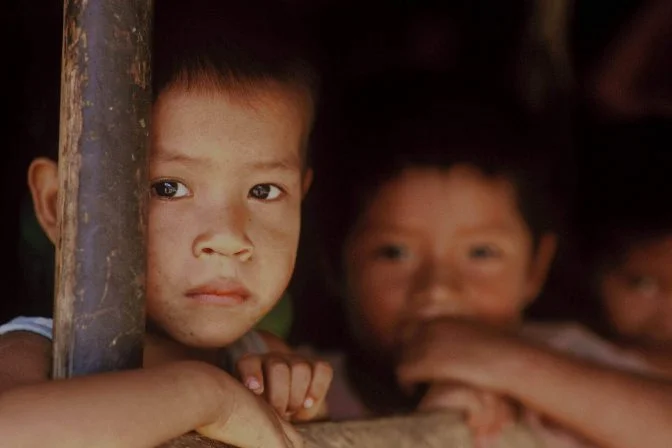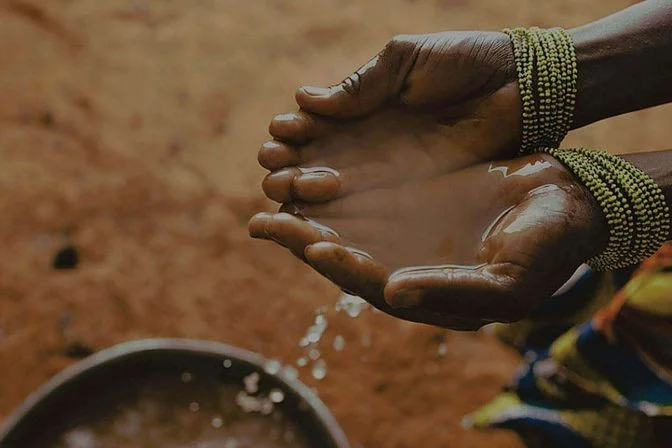Timeline of Key Milestones
India Development Service (IDS) is founded in 1974 by a small group of Indians in Chicago who were concerned about the misfortune of their fellow Indians in their home country. IDS was created to support economic and social development in India and began by organizing conferences and seminars with the aim of educating expatriated Indians in how to setup businesses in India in order to stimulate economic development.
It all started in 1974
India Development Service (IDS) was established to bring economic and social development to India.
IDS created a placement service that tracked job opportunities in the private and public sector in India; IDS organized workshops on small industry and investment opportunities.
IDS co-sponsored a conference in London called “Strategies for Rural Development in India”; IDS realized the need for resources and development in rural India; noted economist and author E.F. Schumacher was guest speaker at IDS’s “Appropriate Technology” conference in Chicago. The knowledge gained from the conferences shifted IDS’s focus from organized investment seminars and increasing investment in India to labor-intensive industrial development in rural areas, using local resources for local consumption; IDS began supporting grassroots community development in India.
IDS’s first financially supported project was building windmills for power generation along the coast of Andhra Pradesh; B.V. Parmeswara Rao of Bhagvatula Charitable Trust, Dmili, Andhra Pradesh, was the grant recipient.
IDS supported investigating technologies for converting peanut shells into building material. Narinder Bedi of the Young India Project was the grant recipient.
IDS began disseminating information on appropriate technology to rural development organizations.
A four-day conference on “Rural and Appropriate Technology” was held in New Delhi; IDS organized meetings with Indian intellectuals, professionals, bureaucrats, and others interested in rural development; IDS began to be recognized for its role in development of rural India; IDS was represented at various national and international symposiums, conferences, and workshops on development. The IDS membership base broadened in the United States.
IDS founding members S.R. Hiremath and his wife Mavis (Shyamala) returned to India and proposed an integrated rural development project in Karnataka.
IDS’s first integrated rural development project, IDS-India, took root; IDS became a direct participant in grassroots development; S.R. Hiremath/Mavis (Shyamala) and the Medleri Project were grant recipients.
IDS recognized the catalytic role that a few committed individuals can play in transforming the lives of disadvantaged and vulnerable people.
IDS member Rakeship Popli returned to India to initiate an integrated rural development project in a remote tribal area in Bihar.
IDS organized a meeting with S.R. Hiremath, Abhay Bhushan, and K.P.S. Hiremath titled “Indians in America: Contributions to Development in India” and recognized individuals throughout the U.S. committed to development in India.
IDS members and representatives of Indian organizations resolved to create India Development Network, an informal organization to encourage cooperation among groups supporting grassroots development in India.
IDS began providing members and supporters with an annual report of its activities.
IDS produced its first newsletter; the publication, The Newsletter, drew articles from various sources.
IDS created the life membership category to encourage ending ties between the organization and its supporters.
IDS created the IDS Trust Fund, an endowment that would eventually pay for IDS’s administrative expenses.
IDS increased the number of directors and named representatives from IDS groups outside Chicago as directors-at-large.
IDS held a “Rural Development in India: Theory and Practice” conference in cooperation with the South Asia Outreach Program at the University of Chicago, bringing together development activists and scholars to discuss problems and successes in rural development.
IDS launched a new quarterly publication, The Catalyst.
IDS conducted an opinion survey which affirmed the importance of IDS’s role as a catalyst not only in transforming the lives of the disadvantaged in India but also in increasing the awareness for development issues among Indian Americans.
IDS designed a grant application form, created project support criteria, and prepared a list of reviewers; guidelines were set for visitors to project sites.
The first annual IDS spring seminar was held: “Development since 1947: Who has been left out?” It examined the status of tribal groups, untouchables, unorganized labor, and groups that traditionally have been left out of the development process.
IDS published a directory of Indian voluntary organizations in the United States.
IDS was awarded the Gandhi Community Award by the India Tribune newspaper.
IDS experienced an upsurge in youth membership and formulated the student externship project.
IDS held its first retreat session for board members.
Second-generation Indians started to become active in IDS.
IDS established university chapters at the University of Cincinnati and the University of Illinois at Urbana-Champaign.
IDS established a Michigan chapter.
The first IDS externs went to India to work with the Bhagvatula Charitable Trust, the first grassroots project that IDS supported, and helped restart the mobile medical unit project.
IDS witnessed an influx of grant applications, further revised its project selection criteria, and began using quantitative selection criteria for the first time. The maximum yearly funding limit for projects increased to $3,000.
The IDS website was created.
IDS formulated its goal to restore a geographic balance in project selection; another goal was to replicate the Grameen Bank model, a trial program for long-term funding.
IDS held its first microcredit seminar.
IDS supported an active member, Madhukar Deshpandes, and his return to India to work at the grassroots level by providing a traveling “Mobile Van for Science” to teach science to village kids.
Organized a gala event in Chicago in honor of Dr. Amartya Sen, Nobel Prize winner in Economics; 350 community members attended the event.
IDS dedicated support to victims of Gujarat earthquake.
Organized seminar in Oak Park, Illinois on Women as Agents of Social Change.
IDS supported its first long-term project, Gram Seva Trust in Gujarat.
30-Year Anniversary Celebration
Honored former IDS volunteer Vikram Akula, founder of SKS, for being named in “Times 100 the 100 Most Influential People in the World.”
Launched Save-A-Mother Campaign.
Collaborated with Loyola University and conducted a seminar on “Rural Innovation and Technologies.”
Collaborated with Loyola University and conducted a seminar on “India’s Children: Preserving their Rights and Protecting their Future.”
Collaborated with Loyola University and conducted a seminar on “Water Sacredness, Scarcity, and Sustainability.”
First joint student conference with India Development Coalition of America (IDCA), DePaul University, and the University of Wisconsin–Whitewater on “Sustainable Development in India.”
IDS conducted the second annual student conference with IDCA, DePaul University, and the University of Wisconsin–Whitewater on “Sustainable Development in India.”
IDS was chosen as one of two organizations for WBEZ’s Global Activism event.
IDS celebrated its 40th Anniversary.
IDS’ third annual student conference with IDCA, DePaul University, and the University of Wisconsin–Whitewater on “Sustainable Development in India” took place.
Jerome McDonnell of WBEZ’s Worldview program traveled to India in February to tour several IDS projects; his interviews were later broadcast, giving thousands of Chicago listeners the chance to hear about IDS projects.
In partnership with two universities and the Indian Pollution Control Association (IPCA), IDS presented the second conference in the Annual Conference in India series. In June, S.R. Hiremath, IDS co-founder, visited Chicago and met with IDS board members and supporters.
In February and December, IDS presented the third and fourth conferences in the Annual Conference in India series. In the Chicago area, IDS hosted its first donor appreciation luncheon, where newly approved projects for 2017 were announced.
In February, IDS hosted the second donor appreciation luncheon and announced new projects for 2018. In May, we hosted the Oak Park appearance of renowned vocalists Pandit Rajan and Pandit Sajan Misra on their historic worldwide concert tour, Bhairav Se Bhairavi Tak.













